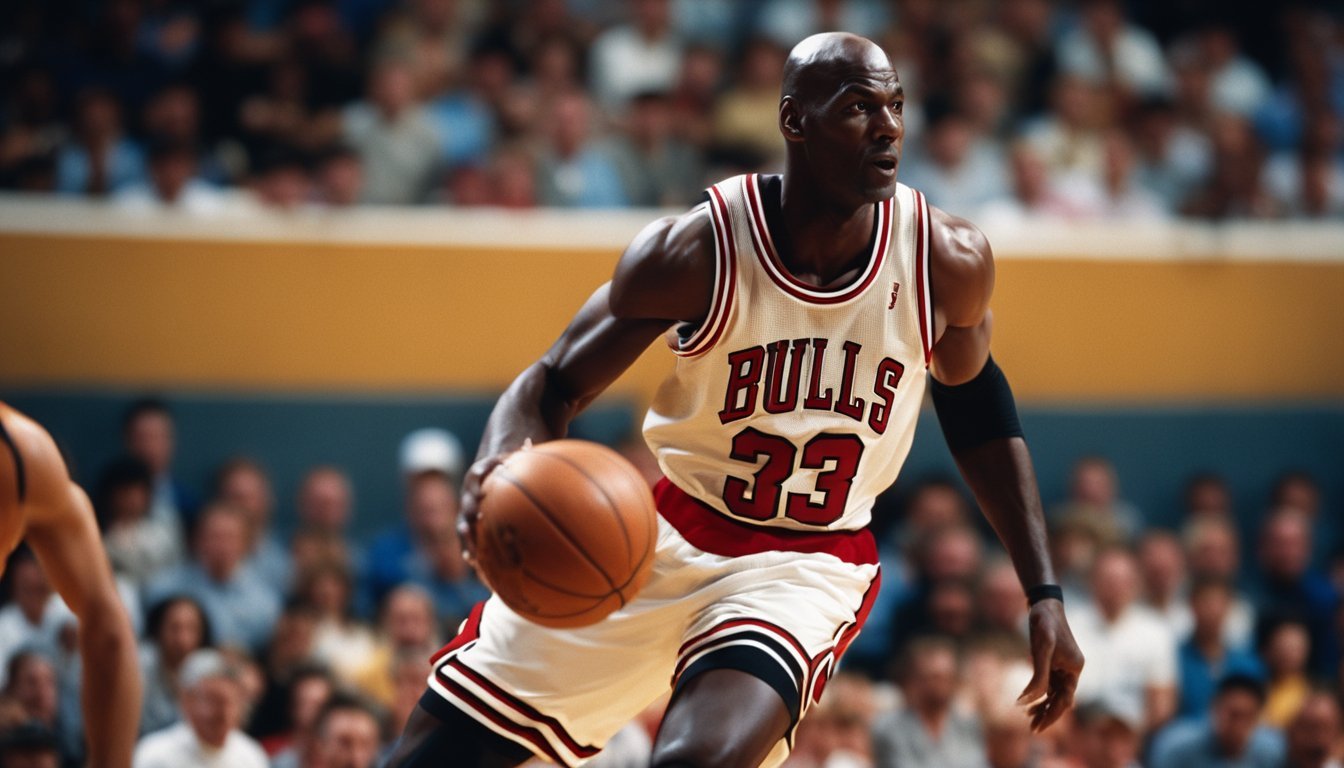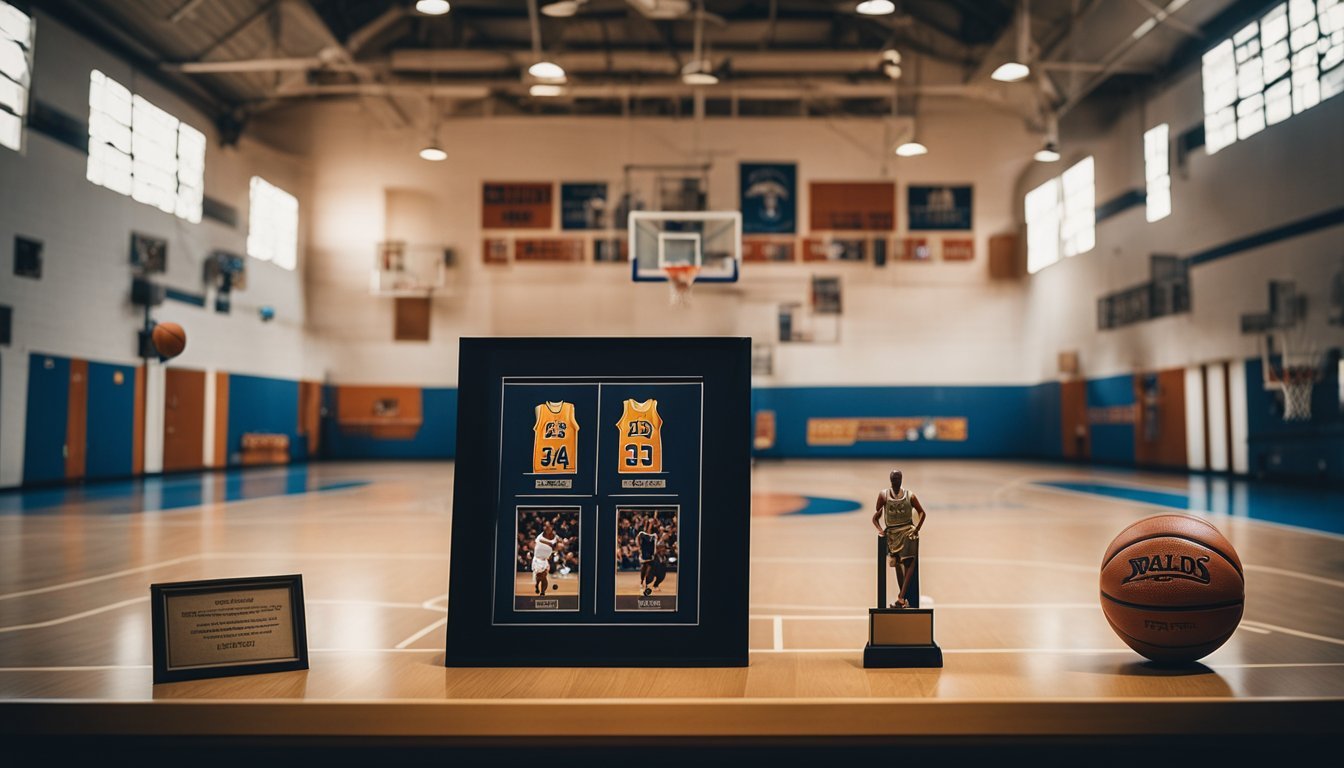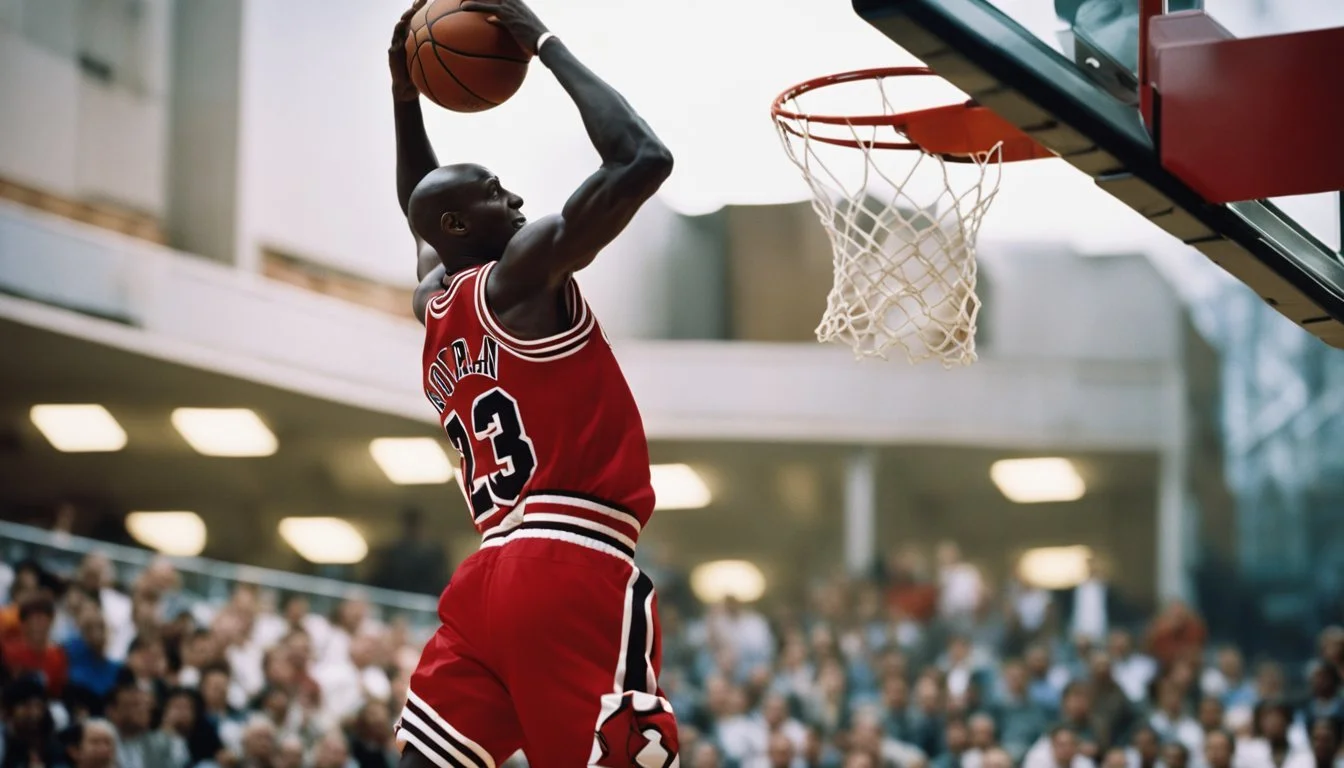The Last Dance (2020) Review
Unveiling the Legend's Journey in Last Dance
There has been a surge in interest surrounding the fascinating life and extraordinary career of legendary basketball player, Michael Jordan. A recent documentary series called "The Last Dance" provides an in-depth look into the man behind the iconic number 23 jersey. This documentary captures and reveals personal aspects of Michael Jordan's life, as well as the tumultuous and exhilarating journey of the Chicago Bulls during their 1997-98 championship season.
Featuring interviews with Michael Jordan himself, along with teammates, coaches, and journalists, the documentary paints a vivid picture of what it was like to be part of the famous Bulls team during that time period. It also showcases never-before-seen footage from both on and off the court. The documentary successfully transports viewers back in time, allowing them to witness the formation of the "Dream Team" and experience the intense pressure faced by this group of athletes.
Through a captivating combination of storytelling, archival footage, and intimate conversations, the documentary effectively explores the highly competitive nature of Michael Jordan, his relentless pursuit of greatness, and the sacrifices he made to achieve his goals. By providing this unprecedented lens into one of sports' most iconic figures, the documentary offers fans and newcomers alike a chance to truly appreciate Michael Jordan's unparalleled legacy in the world of basketball.
Early Life and Career
High School Success
Michael Jordan was born on February 17, 1963, in Brooklyn, New York. He grew up in Wilmington, North Carolina, and attended Emsley A. Laney High School. As a high school student, Jordan played basketball, baseball, and football. Despite some challenges early on, he developed a strong work ethic, which led to his success on the basketball court. During his junior year, he started to attract attention as he led his team to the state playoffs and was soon named to the all-state team.
University of North Carolina
After a successful high school career, Michael Jordan enrolled at the University of North Carolina (UNC) in 1981. There, he played for the legendary coach Dean Smith and became a star player for the Tar Heels. In his freshman year, he made the game-winning shot in the NCAA Championship game against Georgetown. This moment catapulted him into the national spotlight.
At UNC, Jordan continued to excel on the court, earning ACC Rookie of the Year honors, as well as being named an All-American in his sophomore and junior years. He decided to forego his senior season to enter the NBA draft, but before doing so, he helped lead Team USA to a gold medal at the 1984 Olympic Games.
Ultimately, his time at UNC helped shape his skills and mindset, preparing him for an incredible professional career that would make him a global sports icon.
Chicago Bulls Era
First Three-Peat
During the early 1990s, Michael Jordan led the Chicago Bulls to three consecutive NBA championships, from 1991 to 1993. This period, known as the first three-peat, established Jordan as one of the greatest players in basketball history. In each of these championship seasons, Jordan won the NBA Finals MVP award, showcasing his dominance on the court. The Bulls, coached by Phil Jackson and featuring key players like Scottie Pippen and Horace Grant, became a strong, cohesive unit.
Retirement and Baseball Career
In October 1993, Michael Jordan shocked the sports world by announcing his retirement from basketball. Citing a loss of desire to play the game, Jordan ventured into a new career in professional baseball. He signed a minor league contract with the Chicago White Sox and played for their Double-A affiliate, the Birmingham Barons. Though his baseball career was brief and less successful compared to his basketball career, it showcased Jordan's determination and drive to explore new challenges.
Second Three-Peat
After a nearly two-year hiatus from basketball, Michael Jordan returned to the Chicago Bulls in March 1995. His comeback was marked by the famous two-word press release: "I'm back." Jordan soon found his stride, and the Bulls, with the addition of Dennis Rodman, once again became the dominant force in the NBA. They went on to win three more consecutive championships from 1996 to 1998, a period known as the second three-peat. Jordan's excellence on the court continued, as he claimed the NBA Finals MVP award during each of these championships.
Throughout the Chicago Bulls era, Michael Jordan's impact on the game of basketball was immeasurable. His skill, competitiveness, and passion inspired countless players and fans around the world.
The Wizards and Retirement
In 2001, Michael Jordan made a surprising comeback to the NBA, joining the Washington Wizards. His return generated mixed reactions, but it was evident that he still had an undeniable passion for the game. During his time with the Wizards, Jordan's performance showcased his commitment to excellence and competitiveness.
Though his statistics with the Wizards were not as impressive as in his prime years with the Chicago Bulls, Jordan still managed to score an average of 21.2 points per game in his final year. Not only did his presence on the court inspire the Wizards' young players, but it also demonstrated his unwavering determination to succeed despite the challenges of age and injuries.
Jordan's second retirement from the NBA came in 2003 after two seasons with the Wizards. His retirement announcement and his final game were widely covered by the media, commemorating the end of a remarkable career. Throughout his time in the NBA, Michael Jordan achieved numerous accolades, including six NBA championships, five MVP awards, and ten scoring titles. His retirement from the league marked the closing chapter of one of the greatest sports careers in history.
In summary, Michael Jordan's time with the Washington Wizards served as an extension of his prolific basketball career. While his statistics may not have been as remarkable as in his earlier years, his dedication to the game and ability to perform well at an older age solidified his status as a true icon in the world of sports.
Key Career Moments
The Shot
In 1989, Michael Jordan executed one of the most iconic plays in NBA history, known as "The Shot." During the final seconds of the deciding Game 5 in the Eastern Conference First Round against the Cleveland Cavaliers, Jordan made a game-winning jumper that sealed a 101-100 victory for the Chicago Bulls. The Shot showcased Jordan's ability to perform under pressure, solidifying his reputation as a clutch player.
The Flu Game
In the 1997 NBA Finals, Jordan played through illness to secure a victory in Game 5 against the Utah Jazz. Known as "The Flu Game," the Chicago Bulls' star played 44 minutes and scored an impressive 38 points, even though he visibly struggled with flu-like symptoms throughout the game. Jordan's perseverance and determination in The Flu Game have gone down in history as a testament to his incredible work ethic and dedication to his team.
The Last Shot
In 1998, Jordan famously took "The Last Shot" during Game 6 of the NBA Finals against the Utah Jazz. With just 5.2 seconds remaining on the clock and the Bulls trailing by one point, Jordan stole the ball from Karl Malone and dribbled upcourt. He then made a stunning crossover move on defender Bryon Russell before sinking a 20-foot jumper to give his team a 87-86 win and their sixth NBA championship. This legendary moment marked the end of Jordan's career with the Bulls before he briefly retired for the second time.
Legacy and Impact
Business Ventures
Michael Jordan's business ventures have significantly contributed to his lasting legacy. His partnership with Nike in creating the iconic Air Jordan brand transformed the sneaker industry, turning footwear into a fashion statement and marketing tool. Since its inception in 1984, Air Jordan has become a multi-billion dollar brand and a symbol of basketball culture.
In addition to his success with Nike, Jordan has invested in various sports franchises. He became a minority owner and Head of Basketball Operations for the Charlotte Bobcats (now Hornets) in 2006. In 2010, Jordan purchased a controlling stake in the team, making him the first former NBA player to become a majority owner of a franchise. This investment showcases Jordan's continued commitment to the sport and his desire to impact the game beyond his playing career.
Philanthropy
Michael Jordan's philanthropic efforts further solidify his legacy. His impact extends beyond sports and includes a wide array of charitable contributions. Examples of his donations include:
$5 million to the National Museum of African American History and Culture
$2 million to aid in the recovery of Hurricane Florence victims
$1 million to help the Bahamas recover from Hurricane Dorian
Jordan has consistently used his influence and financial resources to support various causes, demonstrating his dedication to the betterment of society. Through his business ventures and philanthropy, Michael Jordan's legacy continues to have a profound impact on the world of sports, fashion, and social issues.






